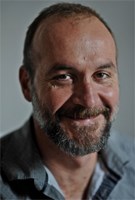
Top stories






More news

ESG & Sustainability
#AGES2026: How to back Africa's next-gen green and blue entrepreneurs























Logistics & Transport
#Budget2026: Road freight logistics and what it means for consumers

It was a typically blustery evening, just four of us on the boat - plenty of opportunity to ask questions and pick up tips. But Theroux once likened himself to French poet, Arthur Rimbaud, in his African travelogue, Dark Star Safari, by celebrating Rimbaud's escape to Africa as "seeking relief from metropolitan phonies, literary trend-spotters, hangers-on, time-wasters, and ambitious importuning twits."
Wisely, I steered clear of admitting any literary aspirations and just shot the breeze, which was easy to do with Theroux, even on a pitching rolling ocean.
Of course, the subject touched on travel and what left the greatest impression on me was his reason for a trip to Angola. "I was just curious," he said, and that was that.
The more curious, the fewer the expectations
It reminded me that the more curious, we are the fewer expectations we have, and the more profound the experience. Travelling becomes more of a discovery - not the "I claim this land in the name of The Queen" type of discovery but the personal type of discovery.
Travelling this way one finds oneself in unfamiliar situations and surroundings, and one has to remain curious to keep going by finding ways out of (or into) situations, relying on strangers and making the best of chance encounters and experiences. It's no holiday, but that's the point. You learn so much more about the people and the place you are visiting.
I beg you to stay curious while I share this from American writer, Michael Dorris:
Though he had never before traveled alone outside his village, the Plains Indian male was expected at puberty to venture solo into the wilderness. There he had to fend for and sustain himself while avoiding the menace of unknown dangers, and there he had absolutely to remain until something happened that would transform him. Every human being, these tribes believed, was entitled to at least one moment of personal, enabling insight.
Anthropology proposes feasible psychological explanations for why this flash was eventually triggered: fear, fatigue, reliance on strange foods, the anguish of loneliness, stress, and the expectation of ultimate success all contributed to a state of receptivity. Every sense was quickened, alerted to perceive deep meaning, until at last the interpretation of an unusual event - a dream, a chance encounter, or an unexpected vista - reverberated with metaphor. Through this unique prism, abstractly preserved in a vivid memory or song, a boy caught foresight of both his adult persona and of his vocation, the two inextricably entwined.
So how does this relate to marketing and advertising? Well, it prompts the question: why does the creative industry, which is so determined to find unique insights, often try to do so by sitting in the office?
We take a brief from the client and commit it to words on paper and PowerPoint. We trawl the Internet for research and inspiration, and pore over rival advertising campaigns. We brainstorm on beanbags surrounded by objects and décor meant to inspire us; or around board room tables. We look at videos of the target market telling us about their target lives.
None of this comes close to the insights one can gain from clearing your head of any preconception and getting out into the world. We are a touchy-feely receptive species, especially the creatively driven, and even if we aren't curious from the start, we certainly will be when we start experiencing what's out there beyond Google and the Cannes Lions archive. The answers are beyond our comfort zones, but that's where we become more receptive.
Result of a chance encounter
One example is young British film maker, Anna Telford, of Butterfly Films (@Butterflyfilms) in Cape Town. Telford pitched on a viral film for Siemens (Osram) and its aim was to expound on the energy-efficient lighting for the Moses Mabhida Stadium and the promenade in Durban.
Under her own expense she travelled to Durban, where she had never been before and with no idea in mind, to find a story. After a while exploring and investigating the lighting initiative, nothing jumped to the fore, but it was a chance encounter at the promenade skate park that resonated and resulted in a wonderfully human film, "Into the Light", about a 50-year-old man who caught sight of his youth by getting involved in skating in what was once a no-go area, now transformed into a safe, vibrant public space, even after dark.
Of course she won the pitch. By putting herself in the situation and opening herself up to experiences and encounters, she found the story. It was a chance encounter, but the chances become so much better when we involve ourselves. ("Into the Light" will be screened at the Labia on Sunday, 18 December 2011, at 6.15pm as part of the Wavescape Film Festival.)
So little is left to chance in advertising. It is becoming more formulaic. If we take those journeys and open up to the experiences outside of the office, don't we have a better chance of discovering magic?
